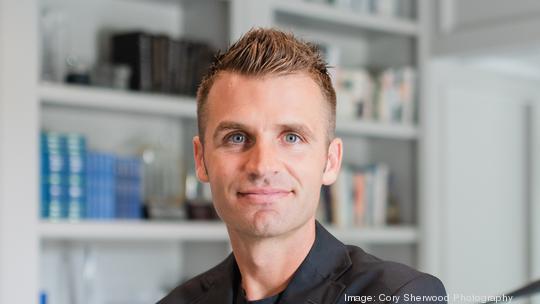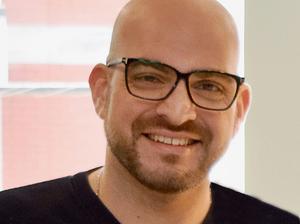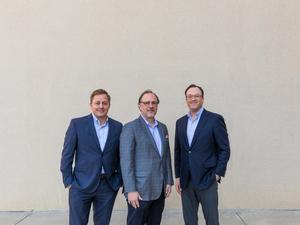
When Cincinnati startup founder Austin Allison sat down for an interview with Cincy Inno in October, there was excitement surrounding his newest business venture.
Allison, who had exited Dotloop, a real estate tech startup, in 2015 with a $108 million sale to Zillow, had just launched Pacaso, and it was already poised to scale incredibly quickly. The company, a property tech startup that aims to makes second-home ownership more accessible, was serving a massive market need, he said. He referred to the old model as “broken.”
But he didn’t expect this. At least, not this fast.
Pacaso, based in California but with an equally distributed team and office in Cincinnati, announced $75 million in new capital at a valuation of $1 billion on Wednesday.
That latter makes it the fastest startup to reach unicorn status, per the company’s own calculations, a rare designation reserved for private companies worth $1 billion or more. It’s been five months since its launch.
“It’s lightning in a bottle,” Allison told me. “We certainly knew from the beginning this was a big problem we were solving. But we expected it to take a lot longer than it has. Spencer [Rascoff, co-founder] and I have never seen anything like this, and we feel very fortunate that the stars have aligned for the company.”
Pacaso, pronounced “Picaso,” aims to modernize the generations-old practice of co-owning a second home. Unlike a timeshare, Pasaco said its buyers own property, not time. Buyers considering second-home ownership tell Pacaso where they want to buy, how much they want to spend and the amount of time they expect to be in the house. Pacaso and its real estate agent partners help find the home and set up an LLC designed for co-ownership. The buyer purchases their desired share — half the home, for example, guarantees access to the home for half the year — and Pacaso briefly purchases the remainder of the home before reselling the remaining portion to vetted buyers.
Pacaso manages the property, and owners can use Pacaso’s mobile app for scheduling stays. Buyers pay a service fee at the time of purchase and a property management fee each year.
Allison wouldn’t disclose specific metrics but said the company has achieved profitability. More than 500,000 people have visited the Pacaso website, and 60,000 aspiring buyers have engaged with the startup to learn more about second home co-ownership.
Allison said the market is in the trillions. There are more than 100 million second homes around the world. Most sit vacant 10-11 months a year. Pre-Covid, when the company surveyed families with a household income topping $150,000 – its initial target market – 75% of those families said they aspired to own a second home.
The pandemic has made second home ownership even more desirable. But because of cost and hassle, it’s a dream often reserved for the top 1%.
“From a macro perspective, there’s been more tailwind for second homes than we expected,” Allison said. “What we saw with Covid is this permanent shift in the way people work, and therefore the way people live. More families have flexibility to work from home, either full time or part time.”
The new capital – which brings Pacaso’s total financing to $90 million – will be used to build market awareness and expansion| into new cities. It’s in 12 markets, largely on the West Coast, and Allison said the focus will start to shift farther east.
While Pacaso is frequently pegged to San Francisco, the Queen City is a primary market for its team. Allison maintains it’s a fully distributed company, meaning it doesn’t call any one city an HQ. Pacaso subleases an office downtown at 18 E. Fourth St. from WineSociety, a premium canned wine company he and his wife, Angela, founded in 2018.
He declined to say exactly how many employees are based here, but companywide, Pacaso’s headcount is 50. There are plans to hire 100 or so more over the next eight months. A “meaningful portion” of that lot will be based in Cincinnati, he said.
Pete Blackshaw, CEO of Cintrifuse, a local startup catalyst, said that, while Pacaso isn’t headquartered here, it has potential to make a significant impact on the region. Greater Cincinnati, to its own credit, has seen a recent influx of property techs like Homeshake, Homebuyer, Homestretch and, most recently, Renozee.
He stopped short of calling Pacaso Cincinnati’s first, and long sought-after, unicorn. The region has not had a lot of runaway success stories, like, per se, Columbus, with Olive AI and Root, a digital insurer that raised $1.2 billion in an October stock offering and a private placement, valuing it at $7 billion. Although this kind of win should help elevate the city’s confidence.
“It gives me optimism,” Blackshaw told me. “He (Austin’s) certainly elevating visibility in Cincinnati in ways that few entrepreneurs have. If this company is as successful as we all hope it will be, it could create another crop of entrepreneurs that know a lot more about Cincinnati. It’s a great story for Cincinnati.”
Allison called the unicorn status purely a “vanity metric,” something the company will celebrate for a few hours before shifting back to the mission at hand. But he’s bullish. Pacaso does have aspirations of going public. There’s just no timetable for when. Either way, he said, Cincinnati will play a major role.
“There’s never been a more pronounced time in history where more people are thinking about second homes,” he said. “This is the moment for this business.”








